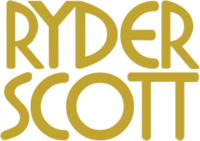
Reserves Audits
The petroleum reserves audit is a review of the data and the interpretive geological and reservoir engineering procedures used in a detailed reserves study at a specific date. The purpose of the audit is to provide an opinion as to the reasonableness of the reserves estimates in the aggregate and of the correctness of the methodology. The audit also tests the classification and status of reserves with respect to the application of whatever specific reserves definitions are used.
Our Reserves Audit Process
The petroleum reserves audit process may focus on several of the following tasks:
1. General risk assessment
2. Evaluation of internal systems and controls
3. Compliance testing
4. Substantive testing
5. Final evaluation
6. Opinion letter and recommended improvements
Purpose of the Audit
1. To appraise whether the reported proved reserves are in compliance with regulatory reporting requirements and in accordance with financial accounting standards including, but not limited to:
a. Verification of the technical and commercial maturity
b. Commitment to future development
c. Reasonable certainty of the proved reserves estimates
2. To appraise whether the reported proved reserves are determined in accordance with the internal corporate guidelines.
3. To appraise whether there are sufficient documentation and work papers supporting the reported reserves.
Scope of Work
1. Third-party process review in which the letter comments on procedures and methodology only; no opinion is offered on reserves quantities or economics.
2. Third party property audit involving review of new discoveries and largest revisions only; opinion letter furnished.
3. Third-party property audit of new discoveries and one-third of the reserves base annually; opinion letter furnished.
4. Third-party entity audit of the largest producing fields comprising 80 percent of the reserves base, typically, those fields are in the upper 20th percentile as ranked by size. This is called the 80-20 approach. Opinion letter furnished. Under new jointly sanctioned audit standards, an evaluator has to audit at least 80 percent of the value of the asset base to call the reserves audit an entity audit.
5. Full entity audit of all properties; opinion letter furnished.
